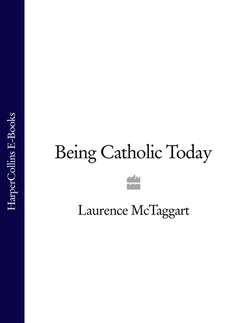Читать книгу Being Catholic Today - Laurence McTaggart - Страница 27
ОглавлениеChapter 6 GET REAL
But they give solidity to the created world.
Ecclesiasticus 38:34
The aim of this chapter is to show how the doctrines we have been exploring can impact on the way we see everyday life. The Gospel is about Jesus Christ, the God who lives with us. Let us begin with the part of life which is perhaps the least likely candidate for finding God: the daily drudge of working (or, worse, not working) for our living.
The modern period has witnessed a large degree of confusion about the purpose and value of work. In the ancient world, things were much simpler. Greek culture, for example, thrived on the institution of slavery, which left a large leisured class able to enjoy the delights of politics, the theatre and warfare. Such a way of organizing society was not simply convenient, it actually reflected what were perceived as fundamental facts about human beings. It was not just the case that slaves were people who had fallen on hard times, or were the captives of vanquished enemies. People became slaves because they were that type of people, understood as almost a separate species. As Aristotle put it, ‘The natural slave is one qualified to be, and therefore is, the property of another or who is only so far a human being as to understand reason without himself possessing it’ (Politics, 1.5).
It is hardly necessary to trace the path of such thinking through history. Perhaps the clearest expression is in the eighteenth-century description of those who did no work at all as ‘people of quality’. Nor is it fair to blame the Greeks. Aristotle was cited only because he gives such a bald statement of what is so easily assumed. The same perceptions would have been found in ancient – Old Testament – Israel. Even in this economically very simple, agricultural society, wealth, and the consequent ability to have servants and be freed from daily drudge, was seen as a sign of righteousness and of blessing. Though the wicked may prosper for a short while, the psalmist assures us that this is done on credit, and that we shall soon see his widow and children begging in the streets. When Job is suddenly cast into utter destitution, the only explanation his comforters can find is that he must somehow have sinned without knowing it. It is but a step from saying that riches are a sign of God’s favour to saying that rich people are the people that God likes. Such thinking underlies the Pharisees’ statement about Jesus in St John’s Gospel that ‘as for this man, we do not even know where he comes from’. Which is simply a way of saying that he obviously does not come from the right place, the right people.
The market place
We have to face the fact that for most people, the word ‘work’ is synonymous with that of ‘toil’. There are two opposing tendencies, which to some degree are present in everyone. One is to minimize work as much as possible, to adopt the attitude of one who ‘clocks’ on and off with little regard for what is done in between, and little sense of purpose in it. The other is to be workaholic, to be someone who cannot stop, who stays late at work or even brings it home at weekends. In some senses, work has become his, or her, life. It would be unwise to rhapsodize about the supreme Christian value of work unless it is taken on board that work is for many a kind of trap, in either futility or the hectic pursuit of rewards that the pursuer then has no time to enjoy. An example of the first is the treadmill of industrial production so well documented in Victorian social fiction, and still to be seen in the sweatshops of emerging Asian economies, while the second is a phenomenon recognizable to many a tired commuter.
What is it that lies at the root of these problems, that has made work a more deadly enemy of the soul than idleness? Perhaps it might be summed up in the word ‘alienation’. The issue can be put very simply. Some people have work which is obviously fulfilling. Take doctors, for example. They spend their day either curing people or helping them to bear their suffering. At the same time they do much to support friends and relatives of the sick, and provide a genuine and real witness of love in society. Their work contributes, and they see the result. While most doctors would seek to diminish the rosy glow about their profession, it remains an example of what the Second Vatican Council had in mind when it said:
When men and women provide for themselves and their families in such a way as to be of service to the community as well, they can rightly look upon their work as a prolongation of the work of their creator, a service to their fellow men, and their personal contribution to the fulfilment in history of the divine plan.
Gaudium et Spes, 34
The same could easily be said of teachers, social workers and many others. But again, if we look around at the majority, it just does not seem to apply. How does a man in a production line turning out, say, sports cars, contribute to society? You might say that he provides necessary means of transport. But who buys sports cars? Not many people, and certainly not the men who make them. A rather disproportionate amount of society’s resources of labour and materials thus goes towards providing a particular, and perhaps unnecessary, means of transport for rather a few people. If we raise the stakes, as Gaudium et Spes
